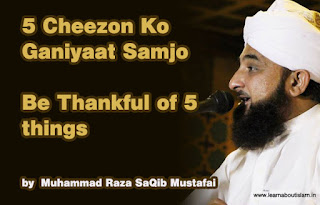What is Islam and What makes one a complete Muslim.
Islam is attainment of peace through submission to Allah. There are five pillars of Islam which form the base foundation of Islam and one who follows it makes a complete Muslim.
These are
1)KALAMA (FAITH):
There is no god worthy of worship except God and Muhammad is His messenger.
This declaration of faith is called the Shahada, a simple formula which all the faithful pronounce.
In Arabic, the first part is
La ilaha illa Llah - 'there is no god except God';
ilaha (god) can refer to anything which we may be tempted to put in place of God - wealth, power, and the like. Then comes illa Llah: 'except God', the source of all Creation.
The second part of the Shahada is
Muhammadun rasulu'Llah: 'Muhammad is the messenger of God.'
A message of guidance has come through a man like ourselves.
2)PRAYER
Shalat is the name for the obligatory prayers which are performed five times a day, and are a direct link between the worshipper and God. The prayers are led by a learned person who knows the Quran, chosen by the congregation. These five prayers contain verses from the Quran, and are said in Arabic, the language of the Revelation, but personal supplication can be offered in one's own language. Because shalat is transliterated from arabic word, so it has multiple english spellings such as salat, salah, sholat, sholah or shalah.Some peoples also called shalat as namaz
Prayers are said at dawn, noon, mid-afternoon, sunset and nightfall, and thus determine the rhythm of the entire day. Although it is preferable to worship together in a mosque, a Muslim may pray almost anywhere, such as in fields, offices, factories and universities. Visitors to the Muslim world are struck by the centrality of prayers in daily life.
A translation of the Call to Prayer is:
God is most great. God is most great.
God is most great. God is most great.
I testify that there is no god except God.
I testify that there is no god except God.
I testify that Muhammad is the messenger of God.
I testify that Muhammad is the messenger of God.
Come to prayer! Come to prayer!
Come to success (in this life and the Hereafter)!
Come to success!
God is most great. God is most great.
There is no god except God.
3) THE 'ZAKAT'
One of the most important principles of Islam is that all things belong to God, and that wealth is therefore held by human beings in trust. The word zakat means both 'purification' and 'growth'. Our possessions are purified by setting aside a proportion for those in need, and, like the pruning of plants, this cutting back balances and encourages new growth.
4) THE FAST
Every year in the month of Ramadan, all Muslims fast from first light until sundown, abstaining from food, drink, and sexual relations. Those who are sick, elderly, or on a journey, and women who are pregnant or nursing are permitted to break the fast and make up an equal number of days later in the year. If they are physically unable to do this, they must feed a needy person for every day missed. Children begin to fast (and to observe the prayer) from puberty, although many start earlier.
5) PILGRIMAGE (HAJJ)
The annual pilgrimage to Makkah - the Hajj - is an obligation only for those who are physically and financially able to perform it. Nevertheless, about two million people go to Makkah each year from every corner of the globe providing a unique opportunity for those of different nations to meet one another. Although Makkah is always filled with visitors, the annual Hajj begins in the twelfth month of the Islamic year (which is lunar, not solar, so that Hajj and Ramadan fall sometimes in summer, sometimes in winter). Pilgrims wear special clothes: simple garments which strip away distinctions of class and culture, so that all stand equal before God.


















